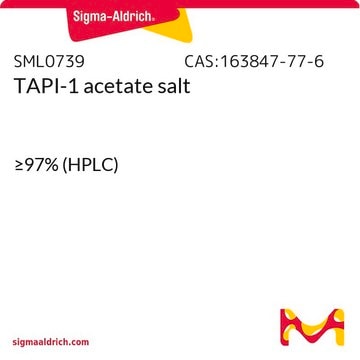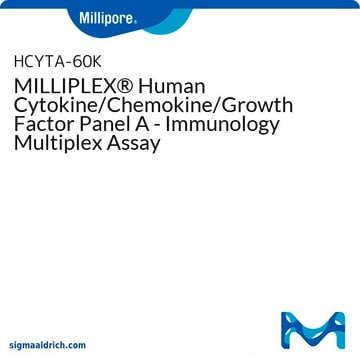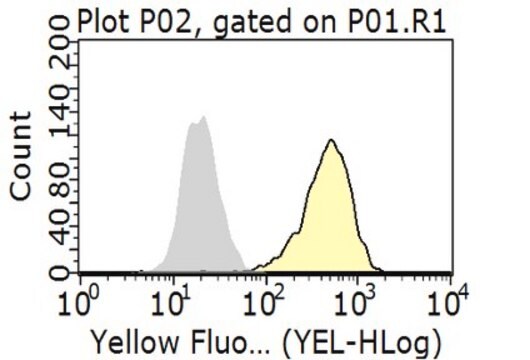Kluczowe dokumenty
E6280
Anti-Endothelial Cell Protein C Receptor antibody, Rat monoclonal
clone RCR-252, purified from hybridoma cell culture
Synonim(y):
Anti-EPCR
Wybierz wielkość
2780,00 zł
Wybierz wielkość
About This Item
2780,00 zł
Polecane produkty
pochodzenie biologiczne
rat
białko sprzężone
unconjugated
forma przeciwciała
purified immunoglobulin
rodzaj przeciwciała
primary antibodies
klon
RCR-252, monoclonal
Formularz
buffered aqueous solution
masa cząsteczkowa
antigen 49 kDa
reaktywność gatunkowa
human
metody
flow cytometry: 5-20 μg/mL using HUVEC cells
microarray: suitable
izotyp
IgG1
numer dostępu UniProt
Warunki transportu
dry ice
temp. przechowywania
−20°C
docelowa modyfikacja potranslacyjna
unmodified
informacje o genach
human ... PROCR(10544)
Powiązane kategorie
Opis ogólny
Immunogen
Zastosowanie
Działania biochem./fizjol.
Postać fizyczna
Oświadczenie o zrzeczeniu się odpowiedzialności
Nie możesz znaleźć właściwego produktu?
Wypróbuj nasz Narzędzie selektora produktów.
Kod klasy składowania
10 - Combustible liquids
Klasa zagrożenia wodnego (WGK)
WGK 2
Temperatura zapłonu (°F)
Not applicable
Temperatura zapłonu (°C)
Not applicable
Środki ochrony indywidualnej
Eyeshields, Gloves, multi-purpose combination respirator cartridge (US)
Wybierz jedną z najnowszych wersji:
Certyfikaty analizy (CoA)
Nie widzisz odpowiedniej wersji?
Jeśli potrzebujesz konkretnej wersji, możesz wyszukać konkretny certyfikat według numeru partii lub serii.
Masz już ten produkt?
Dokumenty związane z niedawno zakupionymi produktami zostały zamieszczone w Bibliotece dokumentów.
Active Filters
Nasz zespół naukowców ma doświadczenie we wszystkich obszarach badań, w tym w naukach przyrodniczych, materiałoznawstwie, syntezie chemicznej, chromatografii, analityce i wielu innych dziedzinach.
Skontaktuj się z zespołem ds. pomocy technicznej








